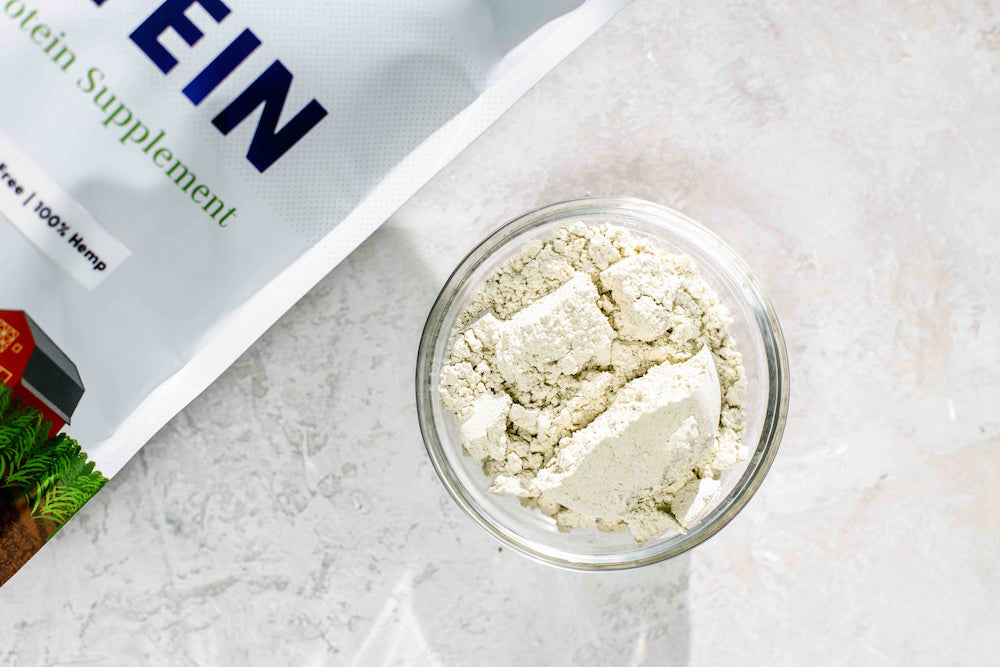Exploring Hemp Protein: Benefits and Potential Side Effects

Hemp protein has become a popular choice among health-conscious individuals seeking plant-based protein sources. Derived from the seeds of the hemp plant, hemp protein is packed with essential nutrients that support overall health and wellness. In this article, we'll delve into the benefits of hemp protein, its nutritional profile, and potential side effects to help you make an informed decision about incorporating it into your diet.
Nutritional Profile of Hemp Protein
Hemp protein is renowned for its impressive nutritional profile. It contains all nine essential amino acids, making it a complete protein source. Here are some key components of hemp protein:
- Protein: Evo Hemp Protein contains 21 grams of protein per serving (30 grams). This makes it an excellent choice for those looking to increase their protein intake, especially vegans and vegetarians.
- Fiber: With approximately 3 grams of fiber per serving, hemp protein aids in digestion and helps maintain a healthy gut.
- Omega Fatty Acids: Hemp protein is rich in omega-3 and omega-6 fatty acids, which are crucial for heart health and brain function. The ratio of omega-6 to omega-3 in hemp protein is about 3:1, which is considered optimal for human health.
- Vitamins and Minerals: Hemp protein provides essential vitamins and minerals, including magnesium, iron, zinc, and B vitamins. These nutrients play vital roles in energy production, immune function, and overall well-being.
Benefits of Hemp Protein
1. Supports Muscle Growth and Repair
Hemp protein is a complete protein, meaning it contains all the essential amino acids needed for muscle growth and repair. Amino acids are the building blocks of protein, and our bodies cannot produce them, so we must obtain them through our diet. Athletes and fitness enthusiasts can benefit from hemp protein as it helps in muscle recovery after workouts.
2. Aids Digestion
Hemp protein is high in both soluble and insoluble fiber, which promotes healthy digestion. Soluble fiber forms a gel-like substance in the gut, slowing down digestion and helping the body absorb nutrients more effectively. Insoluble fiber adds bulk to the stool, preventing constipation and promoting regular bowel movements.
3. Boosts Heart Health
The omega-3 and omega-6 fatty acids in hemp protein contribute to heart health by reducing inflammation and improving cholesterol levels. Studies have shown that a balanced intake of these fatty acids can lower the risk of cardiovascular diseases.
4. Enhances Immune Function
Hemp protein contains globulins, a type of protein that is essential for a healthy immune system. Globulins are involved in the production of antibodies, which help the body fight infections and diseases. Regular consumption of hemp protein can support immune function and overall health.
5. Promotes Weight Loss
Hemp protein can aid in weight loss by promoting satiety and reducing hunger. The high fiber content in hemp protein helps you feel full for longer, reducing the likelihood of overeating. Additionally, protein-rich diets have been shown to boost metabolism and increase the number of calories burned.
6. Improves Skin Health
The omega-3 and omega-6 fatty acids in hemp protein are beneficial for skin health. They help maintain the skin's natural barrier, keeping it hydrated and reducing inflammation. Regular consumption of hemp protein can result in healthier, more radiant skin.
Potential Side Effects of Hemp Protein
While hemp protein is generally considered safe for most people, it's essential to be aware of potential side effects. Here are some possible side effects to consider:
1. Allergic Reactions
Although rare, some people may have an allergic reaction to hemp protein. Symptoms of an allergic reaction can include itching, hives, swelling, and difficulty breathing. If you experience any of these symptoms after consuming hemp protein, discontinue use immediately and seek medical attention.
2. Interaction with Medications
Hemp protein contains high levels of magnesium, which can interact with certain medications, such as antibiotics and blood pressure medications. If you're taking any medications, it's essential to consult with your healthcare provider before adding hemp protein to your diet.
3. Contamination Concerns
While hemp protein itself is safe, there's a risk of contamination with heavy metals or other harmful substances during the manufacturing process. It's crucial to choose high-quality hemp protein products from reputable brands that test their products for purity and safety.
How to Incorporate Hemp Protein into Your Diet
Incorporating hemp protein into your diet is easy and versatile. Here are some ideas on how to add this nutritious protein source to your meals:
- Smoothies: Add a scoop of hemp protein to your favorite smoothie for a protein boost. It blends well with fruits, vegetables, and other superfoods.
- Baked Goods: Use hemp protein as a substitute for flour in baked goods, such as muffins, pancakes, and cookies. It adds a nutty flavor and enhances the nutritional profile of your treats.
- Oatmeal: Stir hemp protein into your morning oatmeal for added protein and fiber. Top with fresh fruits and nuts for a balanced breakfast.
- Soups and Stews: Mix hemp protein into soups and stews to increase the protein content. It dissolves easily and doesn't alter the taste of the dish.
- Salad Dressings: Incorporate hemp protein into homemade salad dressings for a nutrient-rich topping. Blend it with olive oil, vinegar, and your favorite herbs and spices.
Choosing the Right Hemp Protein Product
When selecting a hemp protein product, it's essential to consider the following factors:
- Quality: Choose a product made from organic, non-GMO hemp seeds to ensure purity and avoid harmful pesticides and chemicals.
- Testing: Look for brands that test their products for heavy metals, contaminants, and allergens. Third-party testing can provide assurance of the product's safety and quality.
- Ingredients: Opt for products with minimal ingredients and no artificial additives or sweeteners. Pure hemp protein should contain only hemp seeds and, occasionally, natural flavors.
- Packaging: Choose products with eco-friendly packaging to support sustainable practices and reduce environmental impact.
Conclusion
Hemp protein is a highly nutritious and versatile plant-based protein source that offers numerous health benefits. From supporting muscle growth and digestion to boosting heart health and enhancing skin health, hemp protein can be a valuable addition to your diet. However, it's essential to be aware of potential side effects and choose high-quality products from reputable brands.
By incorporating hemp protein into your meals and snacks, you can enjoy its many benefits while supporting a sustainable and health-conscious lifestyle. Whether you're an athlete, a vegan, or simply looking to improve your overall health, hemp protein is worth exploring as a nutritious and delicious option.
- Tags: food



